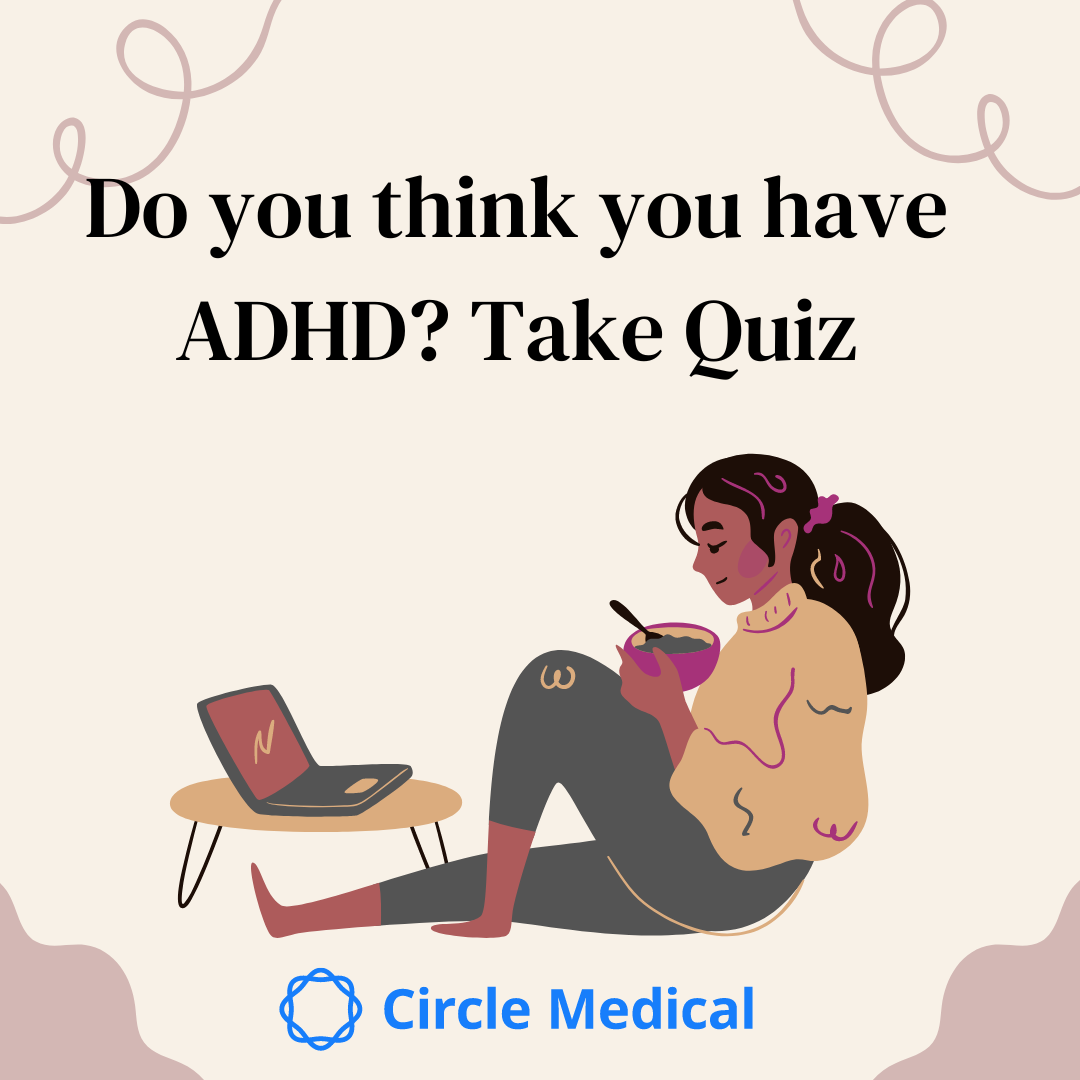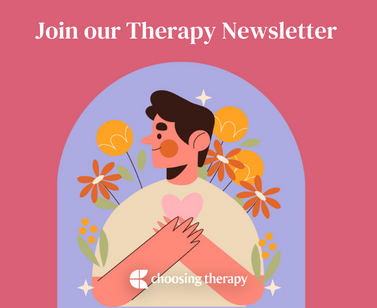It is not recommended to drink any alcohol with Ritalin. They can enhance the effects of one another or lower Ritalin’s effects. Also, substance abuse can occur with both substances. You may want to ask your doctor if they approve of you skipping your dose for the day in order to have a drink.
What Is Ritalin?
Ritalin is a brand name for methylphenidate, which is a stimulant medication used to treat ADHD and narcolepsy.1 It is Food and Drug Administration (FDA)-approved to treat attention-deficit hyperactive disorder (ADHD) in adults and children 6 years of age and older as well as narcolepsy in adults.2 It acts by blocking dopamine and norepinephrine transporters in nerve endings to increase dopamine and norepinephrine. Ritalin produces feelings of pleasure, motivation, and reward resulting in improved attention span and decreased distractibility.
See If You Have ADHD - Same Day Appointments Affordable and accessible ADHD evaluations and treatment, including possible controlled substances medication if clinically appropriate. Diagnosis and prescription over video. Insurance accepted. Same day appointments.
Can You Drink Alcohol on Ritalin?
Ritalin and alcohol may have serious effects if mixed.2 You may consider combining these two if you took Ritalin early in the morning and then want to have a drink later that night. However, Ritalin can last all day and the two have opposite effects on the body. Ritalin is a stimulant that increases your body’s activity, while alcohol is a depressant that lowers your inhibition and function. It’s important to note that there are not any warnings from the clinical trials that state an interaction between alcohol and Ritalin, but that there can still be the potential for dangerous side effects if you combine the two.
What Are the Side Effects of Mixing Alcohol & Ritalin?
Ritalin and alcohol both act on the central nervous system and can have dangerous side effects when combined.2 They can both affect the heart, speeding up your heart rate and increasing your blood pressure. Both substances can also cause nausea, vomiting, and diarrhea, which can lead to dehydration and a more intense hangover. There is no specific FDA warning against mixing them but there are still risks.
Side effects of mixing alcohol and Ritalin may include:*2
- Nausea and vomiting
- Diarrhea
- Headache
- Trouble sleeping
- Dry mouth
- Dizziness
- Drowsiness
- Agitation
You may experience severe side effects from mixing alcohol with Ritalin. Ritalin can mask the effects of alcohol, making it take longer to feel the effects of alcohol, which can risk alcohol poisoning. Also, both can risk serious heart effects and have a risk for substance abuse.2 Also, alcohol can counteract Ritalin’s effects and may lead to you taking too much and overdosing on Ritalin.
Severe side effects of mixing alcohol and Ritalin may include:*2
- Severe dehydration
- Increased or irregular heart rate
- Increased blood pressure
- Serotonin syndrome
- Depression
- Heart attack
- Seizures
- Death
*All medications, including Ritalin, can cause side effects which can be mild or serious. This is not a comprehensive list of all possible side effects. You should talk with your doctor about any questions you have and to understand the potential side effects and benefits of any medication.
Why Is it Dangerous to Mix Alcohol & Ritalin
Alcohol affects the central nervous system as a depressant, lowering thought inhibition, enhancing impulsive actions, and relaxing the mind. It can interact when you have Ritalin in your system by enhancing alcohol’s effects or decreasing Ritalin’s effects.3 Together, they can cause additional risk of alcohol poisoning and major heart events. Both substances have an FDA warning and are not advised to be taken together.2
Severe effects from mixing Ritalin and alcohol may include:2
- Alcohol poisoning: Ritalin can enhance the effects of alcohol, which can lead to alcohol poisoning. Symptoms may include impaired breathing, seizures, coma, or death.
- High blood pressure: Ritalin and alcohol both have an effect on the heart and can increase blood pressure. High blood pressure can be a serious side effect that can lead to heart attacks, strokes, and death.
- Rapid or irregular heart rate: Both Ritalin and alcohol can speed up your heart activity and can have a dangerous effect on your heart’s function.
- Heart problems: Ritalin has a risk of heart side effects, including heart muscle death, sudden heart death, heart attack, and stroke. The risks of heart problems can increase when combined with alcohol.
- Reduced Ritalin effectiveness: Alcohol can oppose Ritalin’s actions, potentially impairing Ritalin’s effectiveness.
- Substance use disorders: Since they act in opposing ways, substance use disorders and ADHD can make each other worse.
- Serotonin syndrome: Both substances can increase serotonin, a hormone that makes you feel happy. When this hormone’s levels increase too quickly, serious side effects can occur, such as agitation, increased heart rate, seizures, coma, and death.
- Major depressive disorder: Alcohol should not be used if you have depression, and Ritalin can make depression worse. Alcohol is a depressant and the combination with depression and Ritalin can risk suicidal ideation or behaviors.
Online Psychiatry Circle Medical – ADHD Diagnosis and Treatment Affordable and accessible ADHD evaluations and treatment, including possible controlled substances medication if clinically appropriate. Diagnosis and prescription over video. Insurance accepted. Same & next day appointments available. Visit Circle Medical Plushcare There are many effective medications for ADHD, including Strattera, which a Plushcare doctor can prescribe. In as little as 15 minutes, you can speak with a board-certified doctor from PlushCare to receive ADHD treatment. Plushcare DOES NOT prescribe controlled substances. Visit Plushcare
Symptoms of a Ritalin Overdose
Mixing Ritalin and alcohol can contribute to an overdose of Ritalin depending on several factors. An overdose can occur even if you don’t drink all the time but are binge drinking. Other factors include your dose of Ritalin, how often you take it, and the strength and amount of alcohol you are drinking.
If someone is actively under the influence and experiencing severe side effects or overdose, you should call 9-1-1 or visit the nearest emergency room immediately. If you suspect someone has overdosed or is overdosing on both, lay them on their side in case they vomit so they can still breathe. Try to wake them, keep them warm, and offer water. Perform cardiopulmonary resuscitation (CPR) if they stop breathing and don’t have a pulse.
Symptoms of an overdose of Ritalin include:2
- Nausea, vomiting, and diarrhea
- Tremor
- Restlessness, anxiety, or agitation
- High or low blood pressure
- Increased, decreased, or irregular heart rate
- Irregular breathing or shortness of breath
- Dilated pupils
How Long After Taking Ritalin Can You Drink Alcohol?
You should not take Ritalin and alcohol together. You should ask your doctor if it’s appropriate to skip a dose on the weekend to have a drink because Ritalin can stay in your system and have effects for at least 18 hours.4 A lower dose of Ritalin has fewer risks but should still not be combined with alcohol.
Why Do People Mix Alcohol With Ritalin?
Risk factors for substance abuse to alcohol and Ritalin include being under a lot of stress and drinking heavily as an adolescent.5,6 People most at risk are those with mental health disorders, a family history of alcohol or drug abuse, and environmental factors, such as peer pressure and being in social settings with alcohol.7 Also, not having a support system or hobbies can increase your risk of substance use disorder.
Want to drink less? – Sunnyside helps you ease into mindful drinking at your own pace. Think lifestyle change, not a fad diet. Develop new daily routines, so you maintain your new habits for life. Take a 3 Minute Quiz.
What Is the Risk of Dependence on Ritalin & Alcohol?
Both substances have a high risk for substance dependence, and the risk is elevated when both substances are used together.2 Dependence can have an effect on you physically, emotionally, and mentally. It can also impact your relationships as well. Dependence can result in lost work productivity and problem-solving skills.8,9 Withdrawals can be painful, making it hard to discontinue use, even if you really want to stop.2
Alcohol & Ritalin Withdrawal
The risk of withdrawal symptoms when using alcohol and Ritalin together is even greater than when used alone. You can risk going through withdrawal from both substances at a safe time. Withdrawal can occur when either substance starts to wear off, as these can affect the brain when medications that improve our mood wear off too quickly.
Symptoms of withdrawal from alcohol include:
- Shakiness
- Nausea and vomiting
- Headache
- Dizziness
- Increased sweating
- Increased hunger
- Headaches
Symptoms of withdrawal from Ritalin include:2
- Unhappy mood
- Anxiousness
- Extreme tiredness
- Vivid or unpleasant dreams
- Difficulty sleeping or sleeping too much
- Increased appetite
- Slowed thought-processing
Seeking Professional Help Using Ritalin & Alcohol
Seek professional help if you believe you are using or craving either substance despite harm. You should seek help for someone in danger from using both substances together if they are using large amounts or are having symptoms of an overdose. Alcohol and Ritalin can risk cross addiction together because alcohol use disorder and ADHD can make each other worse.10
You should discuss alternative treatments with your psychiatrist if you are worried about interactions or side effects from using Ritalin with alcohol. If you need a new psychiatrist, online psychiatry options are available. Treatment options include intensive outpatient treatment for support and finding solutions like finding new hobbies to distract you. Other options may include disulfiram as an alcoholism medication.11
Questions to Ask Your Health Team About Alcohol & Ritalin Use
You may want to ask your provider for their opinion on the use of alcohol with Ritalin. Make sure to ask if they believe it’s appropriate for you to skip your dose for the day. Asking questions with your medical provider is the best way to educate yourself. Those who don’t know how Ritalin may affect their body are at the most risk of adverse effects.
Questions to ask your doctor about alcohol and Ritalin include:
- Is there a safe amount of alcohol that I can consume with Ritalin?
- If someone wants to drink, should they stop taking Ritalin for the day?
- Is there a stimulant or ADHD medication that isn’t negatively affected by alcohol?
- What should I do if I decide to drink anyway and have an adverse reaction?
- What alternatives can I do or take to help relieve my ADHD symptoms naturally?
- What should I do if I have withdrawal symptoms from stopping Ritalin to drink?
- How long after drinking should I wait to restart Ritalin?
- Who is most at risk for experiencing withdrawal symptoms from Ritalin?
- How long after taking Ritalin can I drink alcohol?
- How much alcohol is safe to drink if I have not taken Ritalin for the day?
- How can I naturally relieve dependence on alcohol or Ritalin?
- Is it safe to relieve dependence on alcohol or Ritalin on my own?
In My Experience
In my experience, it may be easier to avoid places with alcohol or drinking together even if you haven’t taken Ritalin that day. The chemical levels in your brain could be thrown off already from not taking your dose of Ritalin. It’s important to talk to your doctor and follow their guidance because Ritalin and alcohol have serious side effects and the potential for abuse.
To help our readers take the next step in their mental health journey, Choosing Therapy has partnered with leaders in mental health and wellness. Choosing Therapy is compensated for marketing by the companies included below. Online Psychiatry Circle Medical – ADHD Diagnosis and Treatment. Affordable and accessible ADHD evaluations and treatment, including possible controlled substances medication if clinically appropriate. Diagnosis and prescription over video. Insurance accepted. Same & next day appointments available. Visit Circle Medical Plushcare There are many effective medications for ADHD, including Strattera, which a Plushcare doctor can prescribe. In as little as 15 minutes, you can speak with a board-certified doctor from PlushCare to receive ADHD treatment. Plushcare DOES NOT prescribe controlled substances. Visit Plushcare Online Therapy BetterHelp Get support and guidance from a licensed therapist. BetterHelp has over 20,000 therapists, who provide convenient and affordable online therapy. Complete a brief questionnaire and get matched with the right therapist for you. Get Started ADHD Management Tools Inflow App Inflow is the #1 science-based app to help you manage your ADHD. Their support system helps you understand your neurodiverse brain, and build lifelong skills. Free Trial Free Prescription Discount Card Optum Perks Save up to 80% on most prescriptions. Optum Perks provides discounts at over 64,000 pharmacies nationwide. No memberships or costs to you, ever. It’s really that easy. Get your card and start saving. Get the discount card! Free ADHD Newsletter A free newsletter from Choosing Therapy for those impacted by ADHD. Get helpful tips and the latest information. Sign Up Choosing Therapy Directory You can search for therapists by specialty, experience, insurance or price, and location. Find a therapist today.Additional Resources
For Further Reading
Do you think you have ADHD? Answer an evidence-based questionnaire for Circles Medical to learn more. Takes 45 seconds.
Best Online Psychiatry Services Online psychiatry, sometimes called telepsychiatry, platforms offer medication management by phone, video, or secure messaging for a variety of mental health conditions. In some cases, online psychiatry may be more affordable than seeing an in-person provider. Mental health treatment has expanded to include many online psychiatry and therapy services. With so many choices, it can feel overwhelming to find the one that is right for you.







